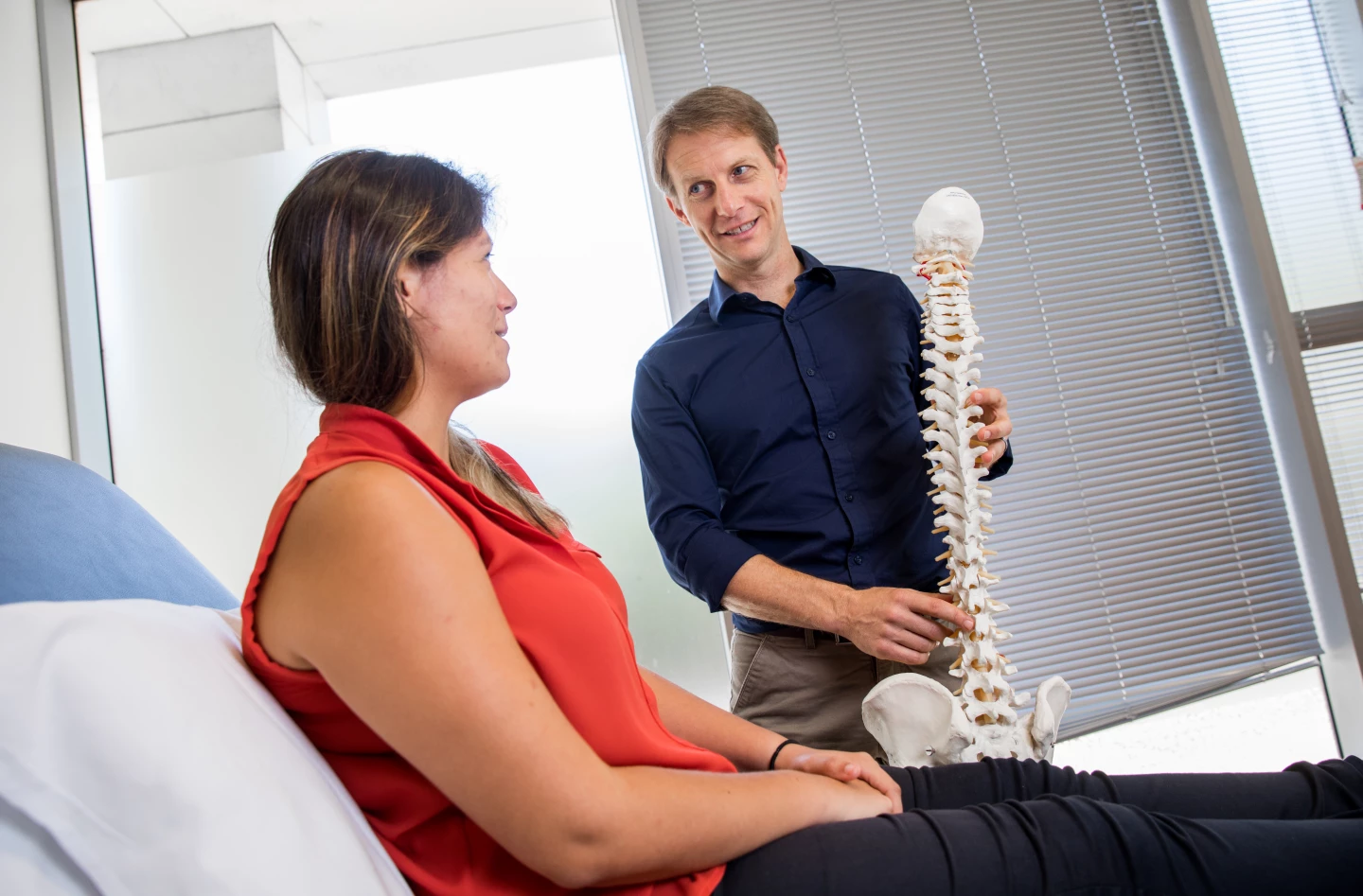There’s new hope for chronic lower back pain sufferers after an innovative trial combining psychological and physical approaches empowered patients to manage pain and movement, resulting in a dramatic reduction in the condition and related mobility issues.
It’s estimated around 80% of adults will experience lower back pain during their lives, with its prevalence only increasing with age. For around a quarter of people, it turns into a frustrating chronic condition, lasting more than three months and can persist for years.
A new treatment known as cognitive functional therapy (CFT) was put to work in a randomized controlled clinical trial of nearly 500 chronic back pain sufferers across 20 physiotherapy practices. The findings of the trial revealed that those receiving CFT – which involved seven individual sessions with specially trained clinicians over 12 weeks, and a booster visit six months later – reported greatly improved movement and pain levels, which continued long after therapy.
CFT, developed by professor Peter O’Sullivan from Perth's Curtin School of Allied Health, Australia, takes a physical and psychological approach, arming chronic pain suffers with the tools to confidently manage their condition and the skills to move in ways that reduces disibility.
“This new treatment takes on board the individual characteristics of the person who has been living with chronic back pain by addressing their concerns and movement limitations under the skilled guidance of a trained physiotherapist,” said O’Sullivan. “This differs to traditional, more passive approaches – including massage, spinal manipulation, medication and injections – because it puts the person in charge of their condition, helping them to understand the factors contributing to their pain, building control and confidence in their body to get back to valued activities.
“It was particularly rare and thrilling to discover that the significant reduction in pain and distress that these people living with chronic back pain experienced had remained right up to one year,” he added.
According to the study from researchers at Curtin, Monash and Macquarie universities in Australia, more than 80% of patients who received CFT were happy with the outcomes, noting the psychological benefits of being empowered to move with newfound confidence.
“Lower back pain is the leading cause of disability across the globe, contributing to a loss of work productivity and early retirement worldwide,” said lead author Peter Kent, associate professor at the Curtin School of Allied Health. “These exciting results give hope to the millions of people around the world who are disabled by back pain. It also provides a clear roadmap for clinicians, health services and policymakers on how to reduce the growing burden of chronic back pain with a high-value, low-risk approach based on the best scientific evidence.”
Mark Hancock, from Macquarie University, who led the Sydney trial of CFT, is now teaching the principles of the therapy to students. It took five months of intensive training to upskill the 18 practitioners that took part in the clinical trial.

“It took quite a lot of training for physiotherapists to develop the skills and confidence to deliver the intervention at a high standard, despite the fact that many were already experienced,” he said, adding that the results make it worthwhile.
“More than 80% of the participants who received CFT reported they were satisfied with their treatment and its outcomes,” he added. “They reported significant improvement in pain levels and being able to return to activities they had previously enjoyed.
“Some people who we’ve had contact with following the study have told us they are still reaping the benefits three years later.”
Researchers believe that this therapy approach, which tackles the psychological aspect of the chronic condition as well as working through the individual physical issues, has another huge benefit.
“The main economic efficiency results showed participants who took part in the CFT treatment saved more than AU$5,000 (US$3,330) per person, largely driven by improvements in their productivity in both paid and unpaid work,” said co-author Terry Haines, a professor at Monash University who investigated the economic efficiency in terms of healthcare and workplace savings. “This has the potential to deliver significant savings to the global economy because we know the burden that lower back pain is contributing to a loss of work productivity and early retirement worldwide."
The study was published in the The Lancet.
Sources: Curtin University, Macquarie University






